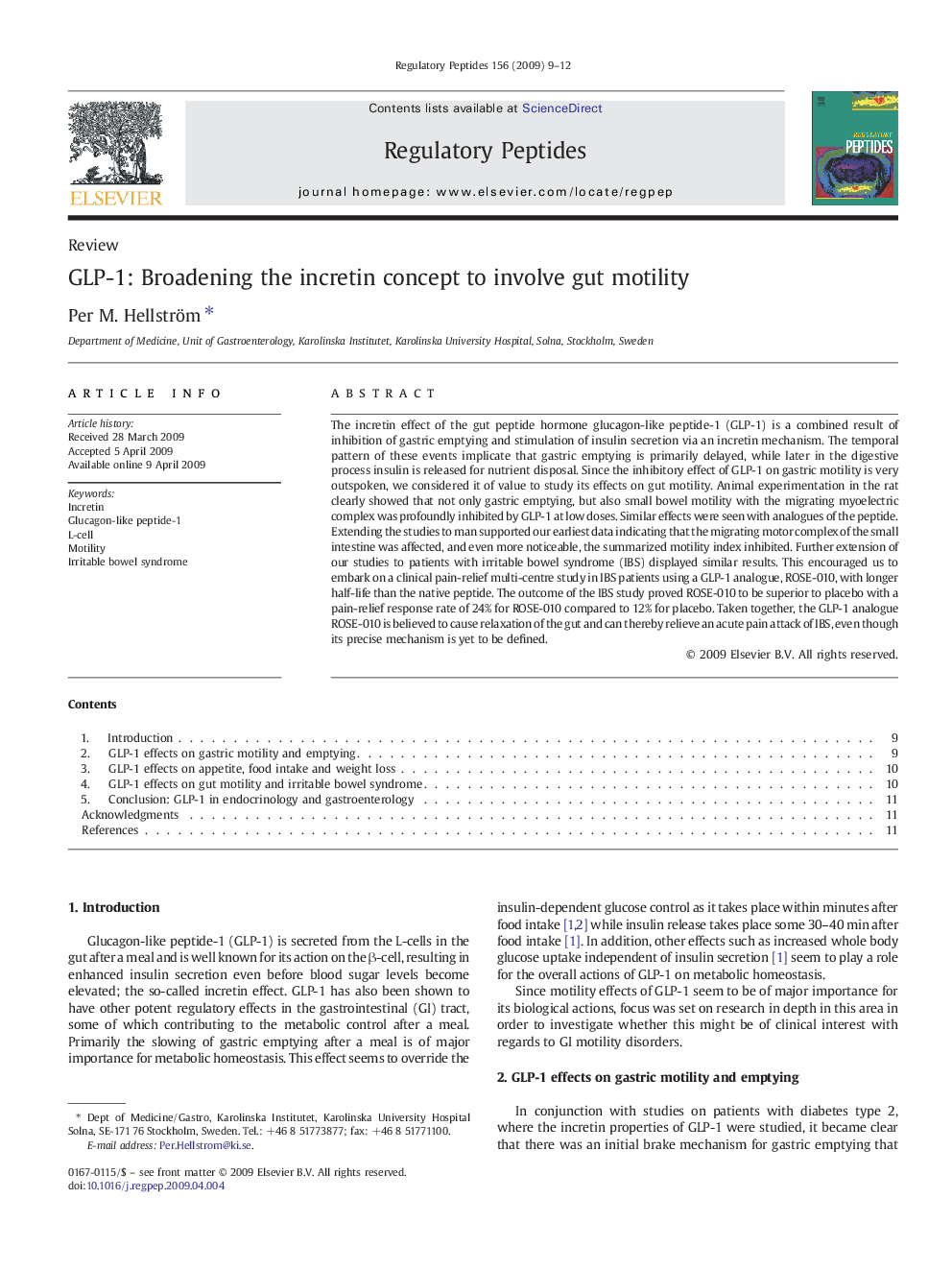| Article ID | Journal | Published Year | Pages | File Type |
|---|---|---|---|---|
| 2022919 | Regulatory Peptides | 2009 | 4 Pages |
The incretin effect of the gut peptide hormone glucagon-like peptide-1 (GLP-1) is a combined result of inhibition of gastric emptying and stimulation of insulin secretion via an incretin mechanism. The temporal pattern of these events implicate that gastric emptying is primarily delayed, while later in the digestive process insulin is released for nutrient disposal. Since the inhibitory effect of GLP-1 on gastric motility is very outspoken, we considered it of value to study its effects on gut motility. Animal experimentation in the rat clearly showed that not only gastric emptying, but also small bowel motility with the migrating myoelectric complex was profoundly inhibited by GLP-1 at low doses. Similar effects were seen with analogues of the peptide. Extending the studies to man supported our earliest data indicating that the migrating motor complex of the small intestine was affected, and even more noticeable, the summarized motility index inhibited. Further extension of our studies to patients with irritable bowel syndrome (IBS) displayed similar results. This encouraged us to embark on a clinical pain-relief multi-centre study in IBS patients using a GLP-1 analogue, ROSE-010, with longer half-life than the native peptide. The outcome of the IBS study proved ROSE-010 to be superior to placebo with a pain-relief response rate of 24% for ROSE-010 compared to 12% for placebo. Taken together, the GLP-1 analogue ROSE-010 is believed to cause relaxation of the gut and can thereby relieve an acute pain attack of IBS, even though its precise mechanism is yet to be defined.
